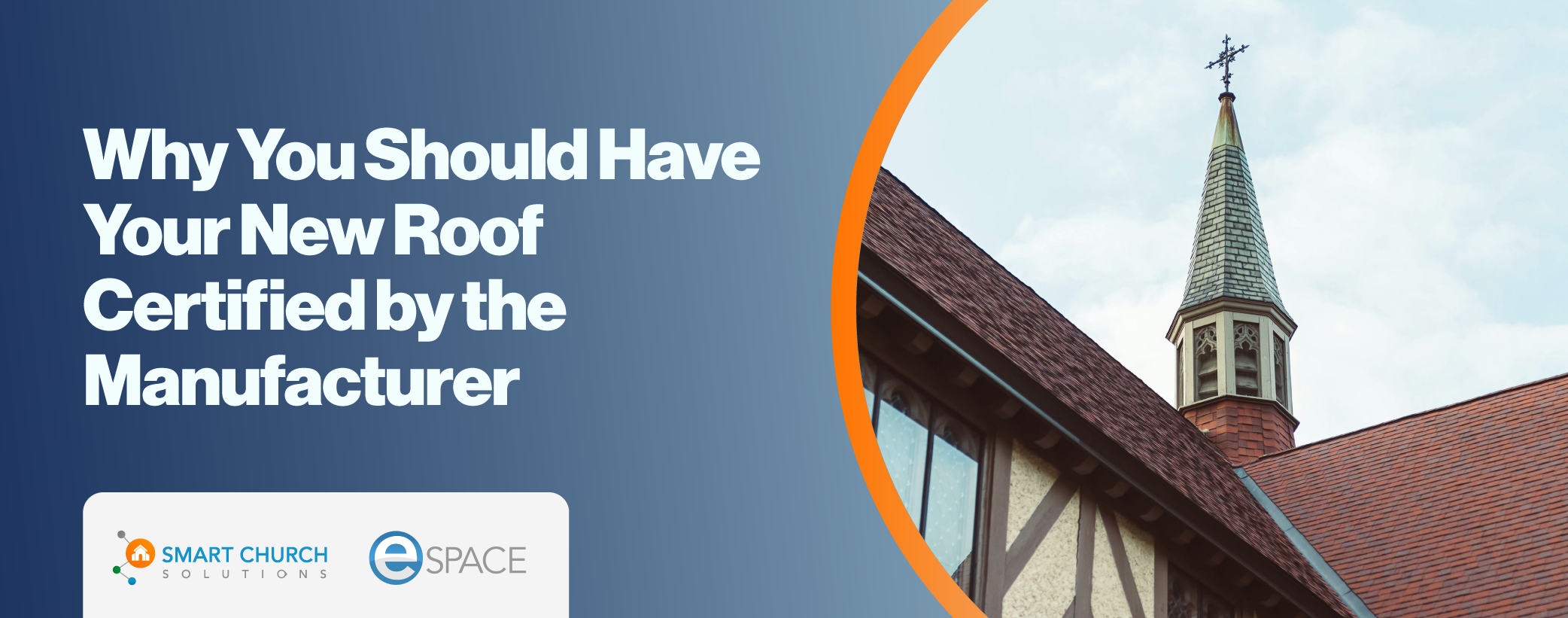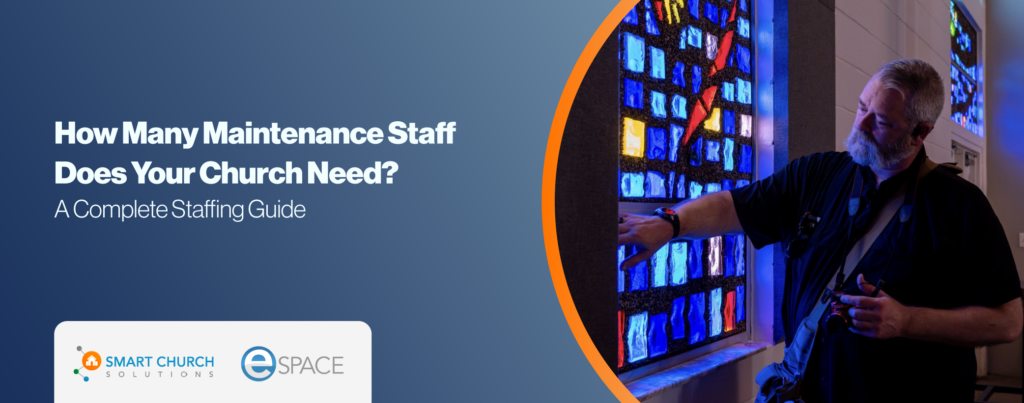When investing in a new roof, church leaders often prioritize the essentials—securing the best price, hiring a trusted contractor, and ensuring quality installation. However, one critical step can sometimes slip through the cracks: manufacturer certification.
While it might seem like just another task on your checklist, certification is more than a formality. It’s a safeguard for your investment and a key to long-term peace of mind. Below are five reasons you should have your new roof certified by the manufacturer.
1. Ensures Quality and Compliance
Manufacturer certification assures that the installation meets the strict standards set by the roofing material manufacturer. These standards ensure the roof performs as intended, providing the durability and protection you expect. A certified roof means that the installation was done correctly, using the right techniques and materials. This compliance is especially important because improper installation can void the warranty and lead to premature failure.
2. Maximizes Warranty Coverage
Most roofing materials come with a manufacturer’s warranty, but these warranties often have specific conditions. One common requirement is that a contractor certified or approved by the manufacturer must install the roof. By having your roof certified, you ensure that the warranty remains valid, protecting you against potential defects or issues down the line. In some cases, certification can also extend the warranty period or offer additional coverage, giving you even more protection.
“Even if you’re working with a licensed and reputable roofing contractor who comes highly recommended, it’s wise not to skip a roofing certification—especially if you’re not experienced in evaluating roofing work yourself. Even trusted contractors can make mistakes or miss details, and a roofing certification provides an additional layer of assurance.” — Patrick Hart, Facility Stewardship Specialist
3. Provides Peace of Mind
Knowing that the manufacturer has certified your roof provides peace of mind. You can be confident that the roof was installed to the highest standards and that it will perform as expected. This certification also reduces the risk of issues arising in the future, which can save you money on repairs and maintenance. With a certified roof, you can rest easy knowing that your facility is well-protected.
“Performed by an independent expert not affiliated with the contractor, a certification ensures that your roof meets manufacturer installation requirements, complies with industry standards, and is structurally sound. This unbiased inspection can be especially crucial in states that don’t require roofing contractors to be licensed or in areas where licensing requirements are minimal.” — Patrick Hart, Facility Stewardship Specialist
Facility decisions can feel overwhelming—but they don’t have to.
Learn how to approach stewardship with clarity and confidence in Entrusted: A Guide to Intentional Church Facility Stewardship.
4. Streamlines Insurance Claims
In the unfortunate event that your roof sustains damage due to a storm or other disaster, having a certified roof can simplify the insurance claims process. Insurers are more likely to process claims quickly and favorably if they know the roof was installed according to manufacturer standards and is covered by a valid warranty. Certification can help avoid disputes over whether the damage was due to poor installation or material defects, ensuring you receive the compensation you deserve.
Not sure how your building would hold up if disaster struck today?
A Facility Condition Assessment gives you a clear picture—and a plan—before small issues become big problems.
5. Supports Sustainable Practices
Many roofing manufacturers are committed to sustainability and environmental responsibility. When you have your roof certified, you’re also ensuring that the materials were sourced, produced, and installed in a way that aligns with these values. This can be an important consideration if you’re aiming to reduce your facility’s environmental impact and promote sustainable practices.
“Ultimately, a roofing certification safeguards your investment, offering peace of mind and protecting your facility for the long term.” — Patrick Hart, Facility Stewardship Specialist
Conclusion
While it might feel like an extra step, having your new roof certified by the manufacturer is more than a wise choice—it’s essential for effective facility stewardship. Certification ensures quality, maximizes warranty benefits, and provides invaluable peace of mind. By prioritizing this step, you’re proactively protecting what has been entrusted to your care.
Before signing off on your new roof, ask your contractor about manufacturer certification. This small investment will deliver significant returns, safeguarding your facility for years to come.







